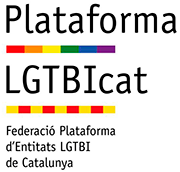In an exclusive Chicago sit-down with The Advocate's Kerry Eleveld, Democratic front-runner Barack Obama discusses "don't ask, don't tell," the Reverend Wright, and what he would do for LGBT Americans if he becomes president.
By Kerry Eleveld
An Advocate.com exclusive posted April 10, 2008

Democratic presidential front-runner Barack Obama has been weathering a small storm lately in the LGBT community for being too tight-lipped with gay and lesbian news media.
Unlike his rival Hillary Clinton, who's given interviews to Logo and several local papers since appearing on the cover of The Advocate last fall, the Illinois senator has talked only once, to The Advocate, to address the Donnie McClurkin controversy. But last week his campaign offered our magazine an exclusive sit-down in Chicago with the man who may well become the next president of the United States.
To some extent, it symbolizes the brilliance of a protracted primary contest where candidates continually pivot and adjust in order to engage ever more voters. Had the race stopped cold in the snows of New Hampshire, gays and lesbians would have been left with one interview of record for each Democratic candidate in total.
But in a wide-ranging interview this Monday, Obama discussed "don't ask, don't tell," the Reverend Wright, and why LGBT folks should lead on marriage equality, not politicians. Some may call the chat a shrewd political move by the Obama camp ahead of the April 22 Pennsylvania primary. We call it access.

The Advocate: Let’s start with what’s hot -- why the silence on gay issues? You’ve done only one other interview with the LGBT press. I know people wish they were hearing more from you.
Senator Obama: I don’t think it’s fair to say "silence" on gay issues. The gay press may feel like I’m not giving them enough love. But basically, all press feels that way at all times. Obviously, when you’ve got a limited amount of time, you’ve got so many outlets. We tend not to do a whole bunch of specialized press. We try to do general press for a general readership.
But I haven’t been silent on gay issues. What’s happened is, I speak oftentimes to gay issues to a public general audience. When I spoke at Ebenezer Church for King Day, I talked about the need to get over the homophobia in the African-American community; when I deliver my stump speeches routinely I talk about the way that antigay sentiment is used to divide the country and distract us from issues that we need to be working on, and I include gay constituencies as people that should be treated with full honor and respect as part of the American family.
So I actually have been much more vocal on gay issues to general audiences than any other presidential candidate probably in history. What I probably haven’t done as much as the press would like is to put out as many specialized interviews. But that has more to do with our focus on general press than it does on… I promise you, the African-American press says the same thing.
And Spanish-language?
And Spanish-language [outlets] had the same gripe. Just generally, we have generally tried to speak to broader audiences. That’s all that is.
I think the underlying fear of the gay community is that if you get into office, will LGBT folks be last on the priority list?
I guess my point would be that the fact that I’m raising issues accordant to the LGBT community in a general audience rather than just treating you like a special interest that is sort of off in its own little box -- that, I think, is more indicative of my commitment. Because ultimately what that shows is that I’m not afraid to advocate on your behalf outside of church, so to speak. It’s easy to preach to the choir; what I think is harder is to speak to a broader audience about why these issues are important to all Americans.
If you were elected, what do you plan to do for the LGBT community -- what can you reasonably get done?
I reasonably can see “don’t ask, don’t tell” eliminated. I think that I can help usher through an Employment Non-Discrimination Act and sign it into law.
You think it’s transgender-inclusive?
I think that’s going to be tough, and I’ve said this before. I have been clear about my interest in including gender identity in legislation, but I’ve also been honest with the groups that I’ve met with that it is a heavy lift through Congress. We’ve got some Democrats who are willing to vote for a noninclusive bill, but we lose them on an inclusive bill, and we just may not be able to generate the votes. I don’t know. And obviously, my goal would be to get the strongest possible bill -- that’s what I’ll be working for.
The third thing I believe I can get done is in dealing with federal employees, making sure that their benefits, that their ability to transfer health or pension benefits the same way that opposite-sex couples do, is something that I’m interested in making happen and I think can be done with some opposition, some turbulence, but I think we can get that done.
And finally, an area that I’m very interested in is making sure that federal benefits are available to same-sex couples who have a civil union. I think as more states sign civil union bills into law the federal government should be helping to usher in a time when there’s full equality in terms of what that means for federal benefits.




